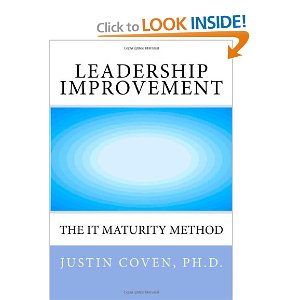|
|
|
|
TopicHero is a website generator, analogous to, but different from WordPress. |
 |
|||||||||||
|
|
|||||||||||
|
Emerging Trends that will Radically Alter Today’s Political Debates By Justin Coven, Ph.D. There are three trends that point to an emerging balanced and peaceful world. The first trend is one of population, the second is one of balance and income equality, and the third is of peace. These are only a small prelude to the tsunami of technology initiated changes that will completely transform our current world and world view, making the political debates of today become meaningless.
A simple analysis of population trends tells us that world population is growing at an unstoppable pace and we will eventually overpopulate the world. However, population experts are now doing more in-depth analysis and noticing that in the areas where people are educated, population not only stops growing but starts declining. Much of this is related to reproduction education. When taking this into account, population experts are now saying that world population will peak at about nine billion and then start declining. The long term reality might be a concern of declining population.
Recent consolidation of a large body of research discussed in “The Spirit Level” by Richard Wilkinson and Kate Pickett indicates that more equal societies are better not just for the 99% but also for the 1%. Richard and Kate have looked across different countries to see how wealth impacts numerous social factors such as life expectancy, happiness, health, education, mental health, drug use, obesity, and other social issues. They found an interesting curve. At first as countries start becoming wealthier all social factors start improving in a linear fashion. However, a plateau for social factors is eventually reached as countries reach a certain level of wealth. A level that we might have used the term ‘developed country’ for in the past. Richard and Kate then worked on identifying what improved social factors within this plateau. They found that those countries with greater income equality fared better across all of the different social factors. They went on to study differences within states in the U.S. and found the same result, that greater income equality meant better social factors within a state. They did note that within a society (i.e. country or state) the rich fared much better than the poor across all of the factors. However, they also noted that the rich in more equal societies fared much better that the rich in less equal societies. The key take away is that the 1% will fare much better where it matters (i.e. social factors) within a more equal society. Dollars are really only numbers sitting on computers somewhere. It makes no sense for a rich person to be fixated on those bits and bytes to the detriment of things that matter such as life expectancy, happiness, health, education, mental health, drug use, obesity, and other social concerns. Education of the rich is consequential, for as they become educated they will strongly desire a society with greater equality, for it will be better for them. Of course the world has recently seen what happens when income equality goes overboard with recent forays into communism. Too much movement in that direction is a great error also. The key word is ‘Balance’. Richard and Kate did not find a developed society where greater income equality went too far, so it is left to future governmental experimentation to find the point of greatest balance. The big question many of you might be asking is where does the U.S. sit on the level of income equality? It is thirty-eighth of the thirty-nine developed countries. Some analysts believe that this is because the system has been put out of balance by current governmental policies. For any system balance needs to be maintained for it to be healthy. At the most macro-economic level of supply and demand some analysts indicate that the American economy has been significantly skewed away from the demand side since the 1980’s and that this is what is causing the imbalance within the U.S. economic system and the above mentioned significant underperformance of the U.S. in the social factors. As further encouragement for the creation of a more balanced society, I offer two other paradigms. First, research has shown that giving provides significant health benefits for the giver. Those who donate their time and wealth have been found to be healthier than those who don’t. Second, as any system needs to be viewed from a perspective of balance, the trickle-down theory only provides a view of one side of a system. The other side is the vacuum-up side. The rich are highly competent and can vacuum up very effectively. It is the trickle-down side that deserves greater attention and assistance. In actuality it should be a flow-down, as opposed to a trickle down in order to have a system that is in balance and healthy. A trickle, in essence, indicates that the system is in an unhealthy state. If you had only a trickle in your home plumbing you would consider it broken. The same should be considered true for an economic system.
Another compendium of research, this time by Steven Pinker, “The Better Angels of our Nature: Why Violence has Declined” looks at violence in human society over the ages. While Pinker admits that relative to other half centuries, the first half of the twentieth century was one of the ten most brutal centuries in human history. However, it was only the ninth most violent when analyzed from a human population proportion perspective. When looking at the proportion of the population killed by its fellow man, the percentage is on a clear downward trajectory over time. In ancient time, whether in small villages or larger communities, being killed by your neighbor, neighboring tribe, or marauding tribe was more prevalent. While from our modern peaceful perspective there is too much violence, it is dramatically reduced from the past and shows all signs of continuing to decline. Looking at the News or political pundits it might seem that violence is overwhelming us. But a big part of the business of government is to deal with violence, so as any good marketer, it is in the government’s nature to advertise violence and make things look bleak so that their budgets increase. Likewise the media sells their product most effectively when there is more sensationalism and emotion, so they too benefit from advertising the negative.
Autonomous cars are on the roads now and will hit the market around 2018. How will this affect Society? Google has announced that they have accumulated 250,000 miles for their autonomous vehicles on public roads. General Motors has been claiming since 2008 that they will have autonomous vehicles on the market around 2018. Are we really that close? Yes! Back in the mid 1980's if a researcher wrote in a research paper that his autonomous vehicle went more than a hundred feet he had to produce a video to prove it. By 2004 not much more progress had been made. The best vehicles were doing only thousands of feet. DARPA challenged the community and in a March 2004 desert competition one vehicle miraculously attained a distance of 7 miles. The following year five different vehicles completed the full hundred-mile plus course, including a team from Louisiana which had just been hit by a category five hurricane. The next challenge in 2007 added the complexity of traffic in an urban environment. This time six teams finished the 55 mile course successfully. Progress is swift, will government keep up with the changes. What will the impact be? How long will it take before all vehicles are autonomous? Will all professional drivers be put out of business? Will this have a greater impact than the replacement of horses with cars? What will happen to automobile insurance? What about the 400,000 hospital beds a year emptied as car crashes disappear? What about the disappearance of 2 million arrests a year for drunk driving? Will there be such a thing as a traffic ticket anymore? What happens when this evolving technology is put into kitchen appliances, gardening equipment, and other products? Years ago science fiction writers pictured vehicles being driven by androids. But this is not how vehicles are becoming autonomous. Instead sensors, actuators, emerging complex computation systems, and communications are being added to make vehicles autonomous. Thus, any highly used and repetitive activity that might be automated will similarly use simple to moderately complex actuators, sensors, and communications, as well as emerging complex computation systems to parallel what is happening with autonomous vehicles. While complex sensors and actuators might be necessary to manipulate the kitchen of today, it would be easy to reorganize a kitchen of tomorrow that does not require complex sensors and actuators. As kitchens are the most commonly remodeled part of the home it is highly likely that the changes needed to realize automated kitchens in the near to mid-term will fall into place. The same is true in many other areas of endeavor. In my recently published book “Leadership Improvement: The IT Maturity Method” (and the http://theitmm.com website) I discuss how dozens of different areas of endeavor will be affected by the impending technological transformation of society. While this text only covers a limited set of all of the different endeavors that will be affected in the next five to fifteen years, it does delve deep into some of the more complex reasoning activities and how they will be impacted. In particularly it delves into leadership and how Information Technology can dramatically impact how leadership is done. Exceptional leaders will no longer be heroes, instead exceptional leadership will become the ability to methodically and continuously create heroes. We are not just looking at the disappearance of almost all driving jobs, the automobile insurance industry, and the parts of police, courts, hospitals, and prisons associated with vehicular issues. We will also be seeing food production, food preparation, education and other industries dramatically impacted. This impact will also dramatically affect more intellectual activities such as leadership, finance, law, and medicine. The impact will not be due to just automation of these reasoning systems, for in the next five to fifteen years only partial automation of reasoning in these fields is possible. The impact will be more the integration of partial reasoning, reorientation to service, and social media. An example of reorientation to service would be legal systems moving away from legal technicalities and towards fostering of effective negotiation (or better yet integration) between legal entities. Details of this is discussed in my above mentioned book. With massive numbers of jobs in almost every endeavor being replaced in ten to fifteen years one might think that other jobs will appear. While this might have happened in the past, for example teamsters moved from working with teams of horses to driving trucks, in this case similar moves will not be made. Yes there will be some new jobs in maintenance of more complex vehicles, but it will likely be just minimal growth that will likely be offset by other automation improvements. It is unquestionable that the number of jobs available will shrink to just a fraction of what it is today. No society can cope with 80-90% unemployment. The societies that adapt the most effectively will succeed. Those that don’t will fail big time. When the electorate wakes up and recognizes that their jobs too will evaporate in the mid future, it will become abundantly obvious that they will need to choose leaders that cannot only adapt to these changes but also take advantage of these changes. The political debates of today will become inconsequential very quickly. |
|||||||||||
|
|
|||||||||||
|
Email: Justin.Coven@jcoven.com, URL: http://jcoven.com |
|||||||||||


